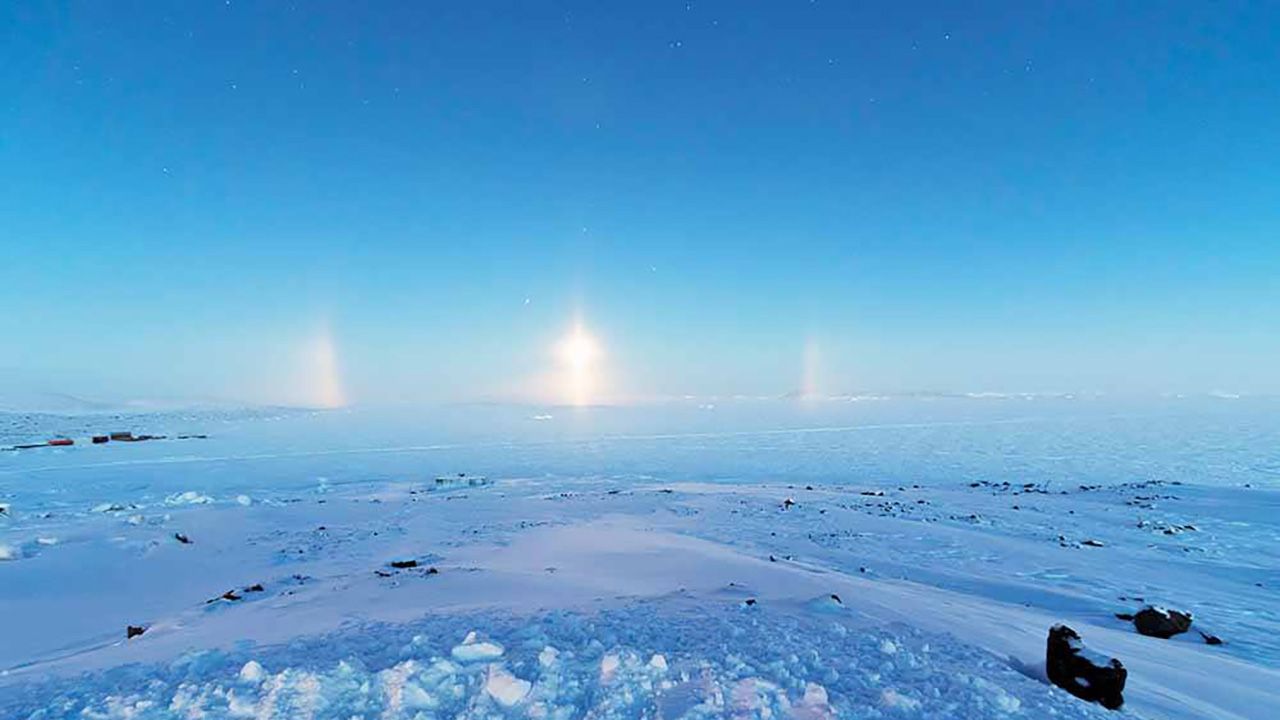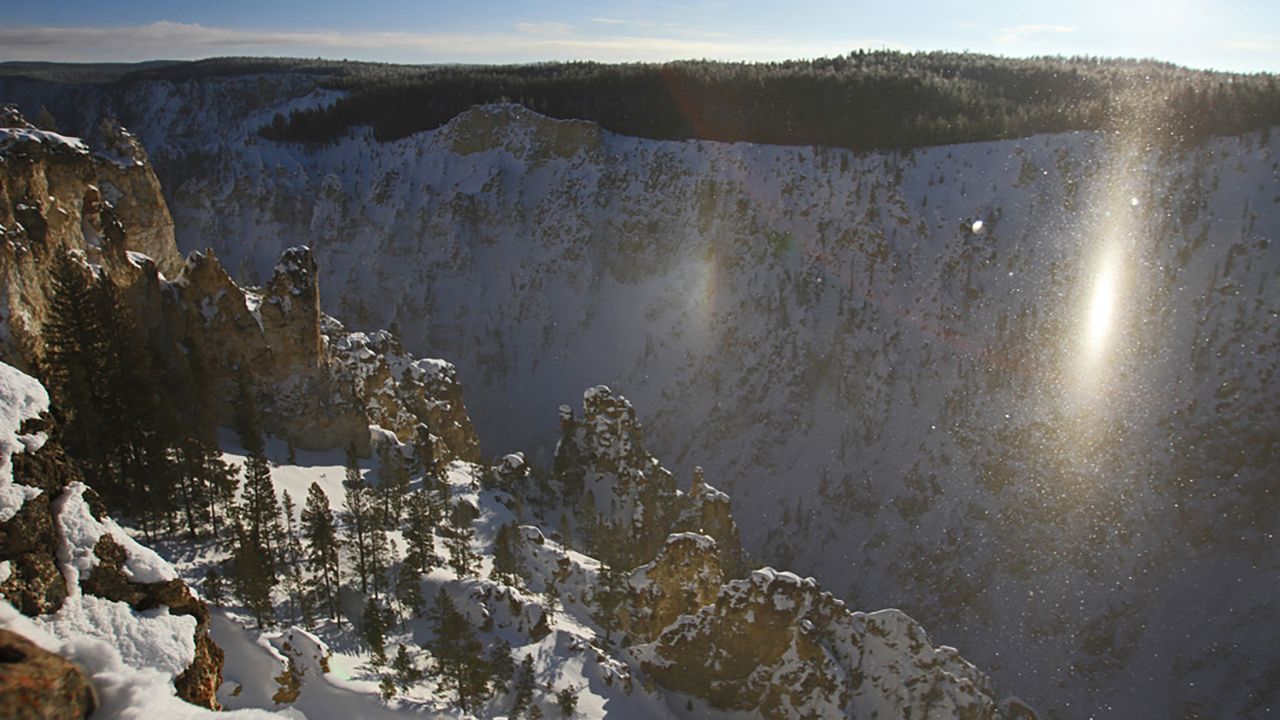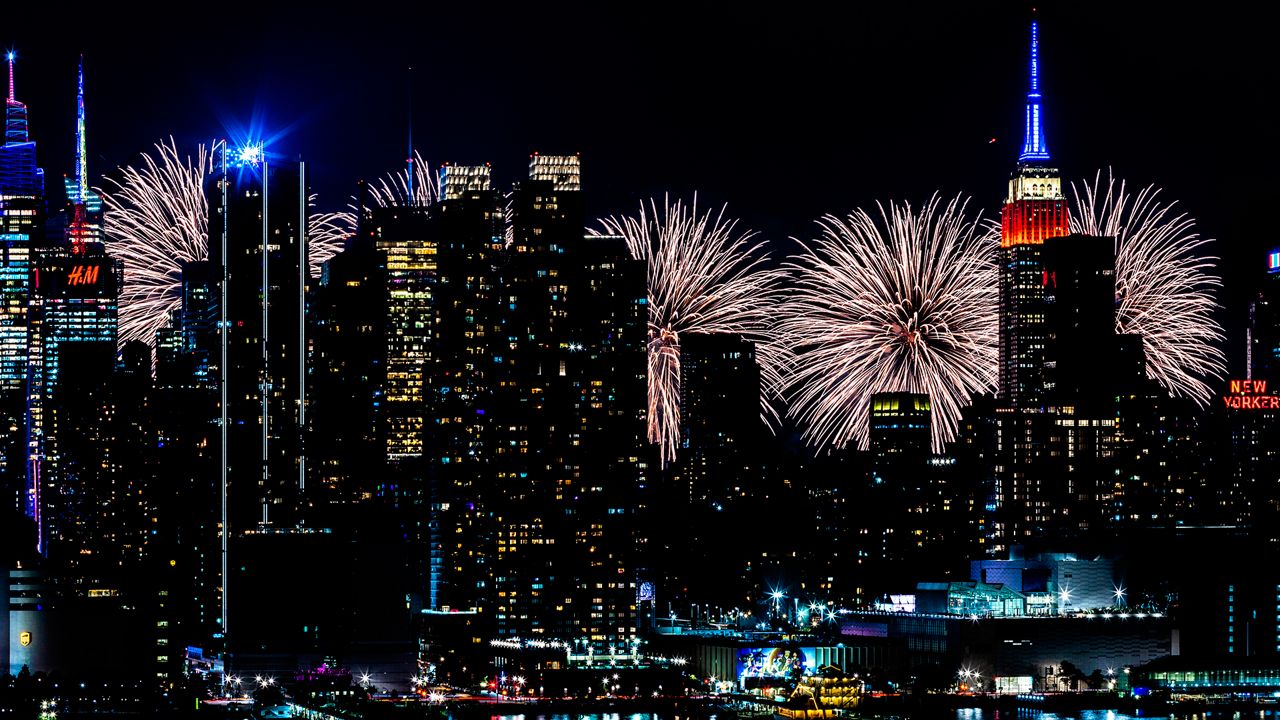Diamond dust is a fun weather phenomenon that can make the air look like it’s shimmering.
Most commonly observed in Antarctica and the Arctic, temperatures need to be well below freezing for diamond dust to form, usually below 15 degrees.
It occurs when precipitation falls as very tiny ice crystals. They are so small that it appears as if the ice crystals are floating in the air.
It also needs to happen on a mostly sunny day, so the light can reflect off the ice crystals, causing them to sparkle in the air.
They can even form beautiful shapes in the sky in the forms of halos and ice pillars.

Antarctica and the Arctic aren’t the only places we can see diamond dust.
You can spot this beautiful event right here in the U.S.
Try your luck during the cold months in any state that typically has freezing temperatures to see if you can catch a glimpse of diamond dust.
Some areas where people have spotted the phenomena include Yellowstone, Wisconsin, Minnesota and Colorado.

Our team of meteorologists dives deep into the science of weather and breaks down timely weather data and information. To view more weather and climate stories, check out our weather blogs section.
Shelly Lindblade - Weather Producer
Shelly Lindblade is a weather producer for Spectrum News. She graduated from Florida State University with a Bachelor's of Science in Meteorology and started her career in front of the camera as a broadcast meteorologist. After 4 years of TV broadcasting, she now loves updating the public on the latest weather news from behind the scenes.




